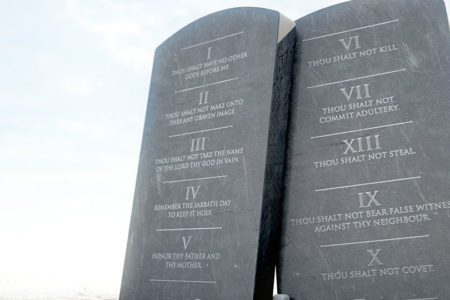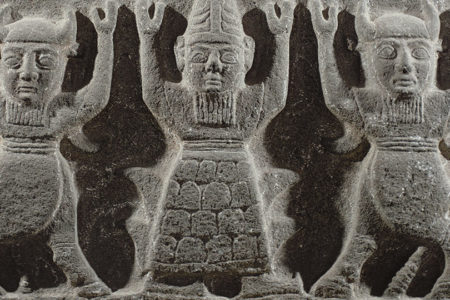A Grave for Israel?
The wild-dove hath her nest—The fox his cave—
Mankind their country—Israel but the grave.—Lord Byron, from “Oh! Weep for Those” in Hebrew Melodies
In light of the situation in the Middle East, the poet’s words are hauntingly prophetic. Not only do they carry refrains from Israel’s ancient prophets, but they echo the Holocaust, pogroms, and the perpetual anti-Semitism that drives demented legions to seek the annihilation of Israel and the Jewish people.
Politicians may thrust and parry over the future size, shape, and disposition of the State of Israel, but few realize the magnitude of the compromises they are willing to make for what they conceive to be peace. In reality, Israel has only two viable considerations: survival, through sufficient determination and muscle to ward off the attacks that are certain to come, or surrender, to again wander as dispossessed and dispersed people in an increasingly hostile international environment.
If this analysis sounds overly dramatic and pessimistic, consider what Israel’s enemies say. In a sermon delivered in May and broadcast on national Palestinian television, imam Ibrahim Mudayris said Jewish people are so evil they cannot be subjugated like Christians. So they must be killed:
Israel is a cancer that spread in the body of the Islamic nation; because the Jews are a virus similar to AIDS, from which the entire world is suffering….The day will come and we shall rule America, Britain, we shall rule the entire world, except the Jews….The stones and trees will want Muslims to finish off every Jew.1
Mudayris’s venom is typical of Israel’s Palestinian “peace partners.” It is incomprehensible that there are Western leaders who think they can transform terrorists still bent on destroying Israel into respectable, nonviolent political activists. It’s as though the rap sheets of Hamas, Islamic Jihad, and al-Aqsa Martyrs Brigade count for nothing.
Palestinian Authority Chairman Mahmoud Abbas has labored long to get these terrorists to say the right things. No matter that they refuse to lay down their arms or relinquish their promises to blow up the peace process the moment they become dissatisfied with the raft of concessions granted them. No matter that they continue to stockpile weapons, keep the rockets flying, and attempt suicide missions. In a global environment that is long on rhetoric, short on memory, and negligent in weighing consequences, making promises you never intend to keep seems a priority.
Every negotiator should ponder what would happen if the eventual were sacrificed for the immediate. Should unwise, quick-fix concessions fail and serve to encourage Israel’s enemies to continue their attacks, frustrated international politicians can walk away from the consequences. Israelis, however, must live with them.
Israel can’t count on outsiders to impose lasting, effective solutions to its problems. But it can count on the continuing animus of its enemies, their religious-political fanaticism, and their obsessive conviction that to annihilate the Jewish people and their state is the supreme act of devotion to Allah.
You might ask why decision-makers in the world of secular politics don’t seem to get it, or why they simply wish to ignore religion as a fundamental issue in the conflict. Perhaps it is because faith plays no dominant role in their own thinking, at least on international issues. Secularization has so thoroughly remolded the public sector that ignoring the obvious is the natural, politically correct thing to do.
For this reason, those who have a more dimensional view of global realities are indispensable to the peace process. When it comes to Israel and Islam, no group outside the Israeli and conservative Jewish communities has a better grasp of reality than do Zionist, evangelical Christians. However, liberal secularists make every attempt to eliminate evangelical perspectives and ridicule the very idea of evangelical participation in the peace process.
Involved evangelicals understand what is at stake and the underlying reasons why compromise in essential matters, such as defensible borders, is unacceptable. Israel’s survival is not optional. It is not, nor will it be, for “Israel but the grave.” Philosopher Eric Hoffer’s words, spoken in 1968, still ring true:
I have a premonition that will not leave me; as it goes with Israel so will it go with all of us. Should Israel perish the holocaust will be upon us.
Biblically and historically literate evangelicals know Hoffer was right.
ENDNOTE
- “Oprah’s Mag Misses the Mark” <www.honestreporting.com/articles/45884734/critiques/Oprahs_Mag_ Misses_the_Mark.asp>.







